We
Webb, Beatrice (1858-1943)
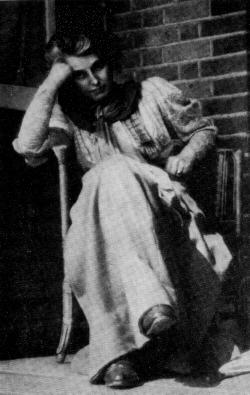 English socialist and historian with husband, Sidney. Activist in socialist movements including the Fabians. Author of a series of historical works.
English socialist and historian with husband, Sidney. Activist in socialist movements including the Fabians. Author of a series of historical works.
Webb, Sidney (1859-1947)
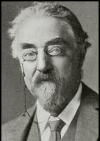 A founder of Fabian Society; co-author with wife Beatrice of numerous books on Cupertino and trade unionism; became minister in 1924 of the Labour government. He and his wife became apologists for Stalinism in the 1930s.
A founder of Fabian Society; co-author with wife Beatrice of numerous books on Cupertino and trade unionism; became minister in 1924 of the Labour government. He and his wife became apologists for Stalinism in the 1930s.
Weber, Max (1864-1920)
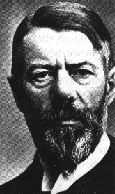 German sociologist and political economist best known for his thesis of the “Protestant Ethic”; an early proponent of positivist sociology and historiography, he promoted the thesis that the significance of a historical phenomenon was determined by the viewpoint of the investigator, rather than by any objective significance; developed the concept of ‘ideal types’ as a tool for isolating sociological phenomena for the purpose of analysis; his methodology was consciously directed against Marxism, promoting the idea of a plurality of historical factors as against what is today called ‘essentialism’.
German sociologist and political economist best known for his thesis of the “Protestant Ethic”; an early proponent of positivist sociology and historiography, he promoted the thesis that the significance of a historical phenomenon was determined by the viewpoint of the investigator, rather than by any objective significance; developed the concept of ‘ideal types’ as a tool for isolating sociological phenomena for the purpose of analysis; his methodology was consciously directed against Marxism, promoting the idea of a plurality of historical factors as against what is today called ‘essentialism’.
Born to a wealthy, liberal, and staunchly Calvinist family, Weber left home to attend the University of Heidelberg in 1882. During a break in his studies to do military service, Weber became very close to the historian Hermann Baumgarten and his wife Ida, friends of his aunt, who stimulated Weber’s interest in the study of history. His father disapproved of this association, thus beginning a conflict with his parents that continued for many years.
In 1895, Weber was appointed Professor of Political Economy at Freiburg, marking his appointment with a speech delivering a devastating endictment of the ruling Junker aristocracy as historically obsolete, and the following year, was appointed to the Professorship at Heidelberg, subjecting himself to the severest of “work ethic” in his study of ancient Rome and the medieval trading societies. He was also politically active in the left-liberal Protestant Social Union. Weber actively promoted for Germany a policy of imperial expansion as the only route to genuine national maturity.
After his father’s death in 1897, Weber suffered a nervous collapse and for 5 years he was intermittently institutionalised, suffering sudden relapses after slow recoveries and did not teach again until after World War I. However, it was in the period after the death of his father that Weber’s best creative work was done.
In his famous The Protestant Ethic and the Spirit of Capitalism published in 1905, Weber attributed the success of German capitalism to the psychological consequences of Calvinism. However, when the Protestant morality that he had come to accept as inescapable destiny came under attack from young avant-garde literary circles such as Stefan George’s group and others, Weber began a series of discussions with Stefan George and the poet Friedrich Gundolf, which contributed much to the evolution of his ideas.
During this period, Weber promoted the need for social theory to adopt a value-free methodology, and he engaged himself in comparative studies of Eastern religions with those of Christian Europe.
In his last years, after the War, he criticised Germany’s annexationist war goals and argued for a strengthened parliament; he assisted in the drafting of the new constitution and in the founding of the German Democratic Party.
Further Reading: Max Weber Archive.
Weerth, Georg (1822-1856)
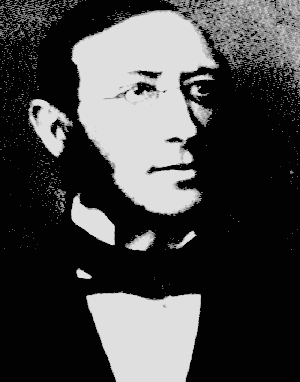 German revolutionary writer. Member of the London center of the "League of Communists" (from 1843 in England), then 1845-7 in Brussels. From then on, friendship with Marx, contributor to Deutsche Brusseler Zeitung. In 1848-9, was an editor with the Neue Rheinische Zeitung.
In 1849, sentenced to three months’ imprisonment for his "Schnappahnski." Business trips (which were partly political courier journeys) through Holland, Spain, southern and central America. Died of tropical fever in Cuba.
German revolutionary writer. Member of the London center of the "League of Communists" (from 1843 in England), then 1845-7 in Brussels. From then on, friendship with Marx, contributor to Deutsche Brusseler Zeitung. In 1848-9, was an editor with the Neue Rheinische Zeitung.
In 1849, sentenced to three months’ imprisonment for his "Schnappahnski." Business trips (which were partly political courier journeys) through Holland, Spain, southern and central America. Died of tropical fever in Cuba.
Weerth was a poet greatly influenced by Heinrich Heine. Engels called Weerth "the first and most important poet of the German proletariat."
Weisbord, Vera Buch (1895-1989)
Vera Buch and her husband Albert Weisbord were leading Communist radicals in the U.S. during the 1930’s. She became politically active as a young woman, joining the left wing of the Socialist Party in 1919 where she began her life-long commitment to labor struggles. She joined the Industrial Workers of the World, as well as the newly formed Communist Party in 1920, and then two years later, the Workers (Communist) Party. In 1926, Vera was sent to help organize at the Passaic textile strike and there she met Albert. They were also major figures in the 1929 Gastonia Textile Strike. Vera and Albert were leaders of the Communist League of Struggle 1931-37, publishing and writing for its organ Class Struggle. Vera also published a book of memoirs, A Radical Life in 1977.
Further Reading: Women and Marxism: Vera Buch Weisbord
Weitling, Wilhelm (1808-71)
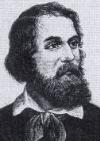 One of Germany’s first proletarian writers. Collaborated with Blanqui. German utopian egalitarian socialist. A tailor and travelling activist in proletarian movements. Criticised by Marx.
One of Germany’s first proletarian writers. Collaborated with Blanqui. German utopian egalitarian socialist. A tailor and travelling activist in proletarian movements. Criticised by Marx.
Wellington, Duke of (1769-1852)
Fought in India 1796-1805, first in Mysore and then in the Mahratta War. Led forces which defeated Napoleon’s armies in Spain and Portugal 1808-14. Commanded allied forces at Waterloo, 1815, where Napoleon’s army was defeated. Prime Minister 1828-30. Opposed (franchise) Reform Bill but withdrew opposition when he saw it was hopeless. Opposed abolition of flogging in the army. Organised military forces against the great Chartist demonstrations in April 1848.
Of Wellington Engels had written in a letter to Marx on April 11, 1851: "I am also gradually beginning to become clearer about Wellington. A self-willed, tough, obstinate Englishman with all the good sense and all the resourcefulness of his nation; slow in his deliberations, cautious; never, despite the most colossal luck, reckoning on a lucky accident; he would be a genius if common sense were not incapable of soaring into genius. Everything he does is a model, nothing a masterpiece. A general like himself might have been created for the English army, in which every soldier, every sub-lieutenant is a little Wellington in his own sphere."
Wells, H.G. (1866-1946)
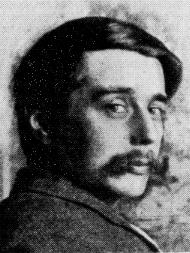 English novelist, journalist, sociologist, and historian, famous for his works of science fiction. Wells’s best-known books are The Time Machine (1895), The Invisible Man (1897), and The War Of The Worlds (1898).
English novelist, journalist, sociologist, and historian, famous for his works of science fiction. Wells’s best-known books are The Time Machine (1895), The Invisible Man (1897), and The War Of The Worlds (1898).
H.G. Wells was born on September 21, 1866 in Bromley, Kent. His father was a shopkeeper and a professional cricketer, and his mother served from time to time as a housekeeper at the nearby estate of Uppark. His father’s business failed and Wells was apprenticed like his brothers to a draper, spending the years between 1880 and 1883 in Windsor and Southsea. Later he recorded these years in Kipps (1905).
In 1883 Wells became a teacher-pupil at Midhurst Grammar School. He obtained a scholarship to the Normal School of Science in London and studied biology under T.H. Huxley. However, his interest faltered and in 1887 he left without a degree. He taught in private schools for four years, not taking his B.S. degree until 1890. Next year he settled in London, married his cousin Isabel and continued his career as a teacher in a correspondence college. From 1893 Wells became a full-time writer. After some years Wells left Isabel for one of his brightest students, Amy Catherine, whom he married in 1895.
As a novelist Wells made his debut with The Time Machine (1895), a parody of English class division and a satirical warning that human progress is not inevitable. The work was followed by such science-fiction classics as The Island Of Dr. Moreau (1896), The Invisible Man (1897) and The War of the Worlds (1898). The First Men On The Moon (1901) was a prophetic description of the methodology of space flight and The War In The Air (1908) describes a catastrophic aerial war. Love And Mr. Lewisham appeared in 1900, Tono-Bungay and The History Of Mr. Polly in 1909. Wells also published critical pamphlets attacking the Victorian social order, among them Anticipations (1901), Mankind In The Making (1903) and A Modern Utopia (1905).
Passionate concern for society led Wells to join the socialist Fabian Society in London, but he soon quarreled with the society’s leaders, among them George Bernard Shaw. This experience was basis for his novel The New Machiavelli (1911), where he drew portraits of the noted Fabians. After WWI Wells published several non-fiction works, among them The Outline Of History (1920), The Science Of Life (1929-39) and Experiment In Autobiography (1934). In 1917 Wells was a member of Research Committee for the League of Nations and published several books about the world organization. Between the years 1924 and 1933 Wells lived mainly in France. From 1934 to 1946 he was the International president of PEN (organisation which supports writers suffering repression).
In The Holy Terror (1939) Wells studied the psychological development of a modern dictator based on the careers of Stalin, Mussolini, and Hitler. Wells lived through World War II in his house on Regent’s Park, refusing to let the blitz drive him out of London.
His last book, Mind At The End Of Its Tether (1945), expressed pessimism about mankind’s future prospects. Wells died in London on August 13, 1946.
See H G Wells Archive.
Wels, Otto (1873-1939)
Top leader of the German social democracy who crushed the Spartacist uprising as military commander of Berlin in 1919, and who headed his party’s delegation to the Reichstag until Hitler took over total power in 1933.
Weston, John
A member of the General Council of the First International from its formation, and attended the Inaugural Meeting on September 28 1864; member of the General Council 1864-1872. Carpenter, subsequently a manufacturer and an Owenist. He was a delegate to the London Conference in 1865, a member of the Executive Committee of the Reform League, a leader of the Land and Labour League. In "Value, Price and Profit," Marx uses Weston as the protagonist with Weston advocating the "Wages Fund" theory to prove that any wage rises would be negated by inflation. As Treasurer of the International, he was one of the signatories of the Address of the Council drawn up by Marx on the Paris Commune (The Civil War in France) May 30, 1871. "Our old Weston," as Marx called him (letter to Engels, November 7, 1867); Weston supported Marx’s line on the Irish question.
Westphalen, Christian von (1724-1792)
Christian Heinrich phillip von Westphalen: Grandfather of Jenny Marx. Secretary of Duke of Brunswick.
Westphalen, Edgar von (1819-1890)
Brother of Jenny Marx. Tried to start a utopian community with other German free-thinkers in Texas, U.S. Eventually returned to Germany.
Westphalen, Ferdinand Otto von (1819-1890)
Prussian Minister of the Interior. Half-brother of Jenny Marx.
Westphalen, Heinrich von (1768-1855)
Heinrich georg von Westphalen: Uncle of Jenny Marx.
Westphalen, Jenny von
Wife of Karl Marx. See also Jenny Marx.
Westphalen, Karl von (1803-1840)
Karl Hans Werner von Westphalen: Half brother of Jenny Marx.
Westphalen, Karoline (-1856)
Mother of Jenny Marx.
Westphalen, Ludwig von (1770-1842)
Attorney in Trier. Father of Jenny Marx.
Weydemeyer, Joseph (1818-1866)
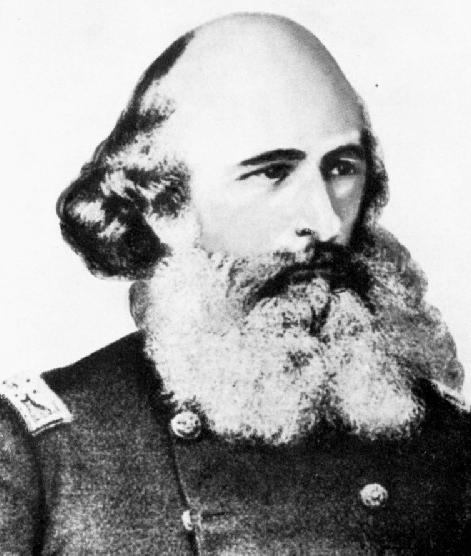 Prussian artillery officer. Writer. At first a supporter of "true socialism" he became, in 1845-46, a follower of Marx and Engels. Member of the League of Communists; in 1849-51, head of its Frankfurt chapter. He visited Marx in Brussels, stayed there for a time and attended Marx’s lectures. Participated in the 1848 Revolution. One of the "responsible editors" of the Neue Rheinische Zeitung in 1849-50. There too he wrote out large parts of the manuscript of the Deutsche Ideologie (German Ideology) in a fair copy. Collaborated in socialist periodicals: the Westphälisches Dampfboot (Westphalian Steamboat) and the Neue Rheinische Zeitung. In 1851 he emigrated from Germany to America and worked there as a journalist. He took part in the war against the Southern slave owners as colonel of a regiment in the Northern army.
Prussian artillery officer. Writer. At first a supporter of "true socialism" he became, in 1845-46, a follower of Marx and Engels. Member of the League of Communists; in 1849-51, head of its Frankfurt chapter. He visited Marx in Brussels, stayed there for a time and attended Marx’s lectures. Participated in the 1848 Revolution. One of the "responsible editors" of the Neue Rheinische Zeitung in 1849-50. There too he wrote out large parts of the manuscript of the Deutsche Ideologie (German Ideology) in a fair copy. Collaborated in socialist periodicals: the Westphälisches Dampfboot (Westphalian Steamboat) and the Neue Rheinische Zeitung. In 1851 he emigrated from Germany to America and worked there as a journalist. He took part in the war against the Southern slave owners as colonel of a regiment in the Northern army.